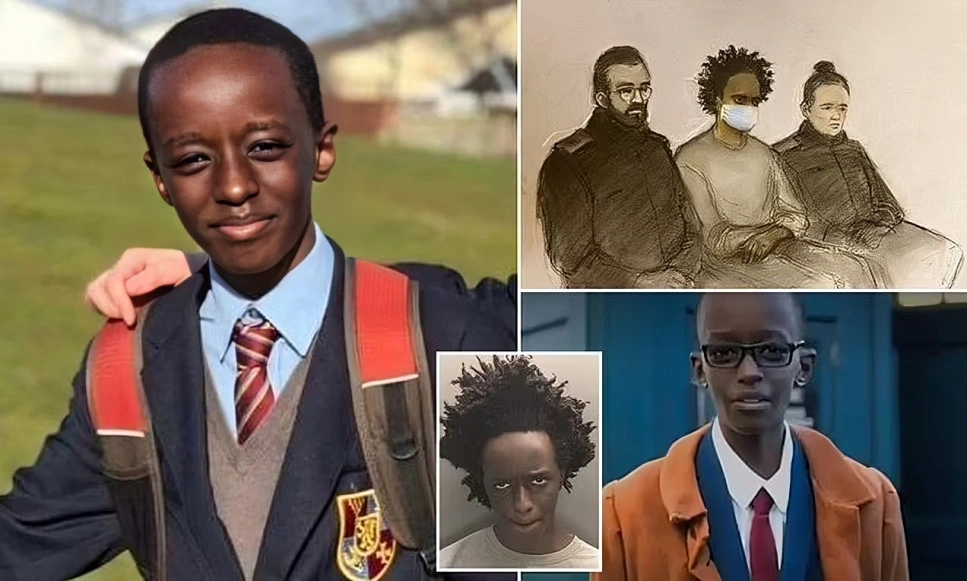Three little girls were killed in July 2024 after a knife assault at a children’s dancing class in Southport in England. The Southport killer was sentenced to 52 years minimum life term of imprisonment, Axel Muganwa Rudakubana, aged 18, a number of years. However, UK police have hired FBI and US Department of Justice to help get Southport killer’s erased internet records, to gain an insight of what he was looking for could shed some new light into the cause of this horrifying act.
Background of the Southport Attack
Sensing the moment around them, seventeen year old Axel Muganwa Rudakubana, Southport killer, decided to inflict a vicious knife assault on a Taylor Swift themed dance class in Southport, England killing three little girls, six year old Bebe King, seven year old Elsie Dot Stancombe, and nine year old Alice da Silva Aguiar. During the attack, eight youngsters and two adults were among others hurt, along with ten other people. Southport killer was temporarily arrested at the scene following a history of aggressive conduct and being reported to the Prevent programme on three occasions between 2019 and 2021. He turned himself in guilty later on to three counts of murder, ten counts of attempted murder and possession of ricin and terrorist tools. In January 2025, he was condemned to life with a minimum term of 52 years.
Initial Investigation Efforts
Axel Muganwa Rudakubana, the perpetrator of the July 29, 2024 knife assault at a children’s dancing class in Southport, Merseyside Police Police responded swiftly to the emergency calls, arriving minutes later and apprehending the culprit and attending to the injured. But when researchers were unable to locate Southport killer online before the assault, it was a huge roadblock in determining what drove them to commit it. This is one they aimed to get a vital understanding of the offender’s intentions and they asked the FBI and US Department of Justice to get help retrieving the deleted data within the UK boundary.

The Role of Digital Evidence in Criminal Investigations
Internet history of a suspect reveals his or her intents, plans and online behavior which can be very crucial during criminal investigation. Service providers are required to cooperate with law enforcement and employ forensic tools to retrieve data that had been erased. Although encryption, privacy rules, and cross-border data storage make it difficult to retrieve important evidence, it is still difficult to retrieve.
Collaboration Between UK Authorities and the FBI
Because the Southport investigation involved cyber forensics and data recovery, the FBI participated in the probe and helped UK authorities recover Southport killer’s deleted internet history to find out his reason behind the incident. International collaboration in investigation of crimes is usual too;the Madeleine McCann case is one where the FBI helped and Europol worked with the U. S. agencies to dismantle global cyber crimes groups. These partnerships enhance intelligence sharing and technical skills in daunting cases.
Legal Framework Governing Cross-Border Investigations
There exist frameworks like the United Nations Convention against Corruption (UNCAC) which articulates the road into international law enforcement collaboration like a procedure such as mutual legal assistance and joint investigations. Axel Rudakubana, Southport killer, necessitated UK authorities request the FBI to help recover deleted internet data from him. To carry it out, legal processes were employed, meaning getting court orders and guiding U. S. technology companies to hand over the required information.
Insights from Recovered Data
The recovered internet history of Axel Muganwa Rudakubana could point to other activities that preceded his attack such as researching violent events or extremist ideologies. There are these revelations, which may give the officials a better insight into his motives and what was going on in his mind the coming days before the Southport killer’s attack, and provide an indication of any influences or planning that may have been a factor.

Challenges in Data Retrieval
The deleted internet histories are robustly encrypted and data protection for the users is first priority with technology companies, leaving little leeway for law enforcement to obtain deleted internet histories. Legal quizzes face investigators, who need court or international help to gain crucial evidence. They sought to build legal frameworks that will allow limited access to security needs without compromising privacy measures to avoid untoward use of personal information.
Media Coverage and Public Perception
In representing the Southport killer case investigation, the media has been diverse in its tone, focusing on the importance of grasping the attacker’s motives and others questioning the lack of information surrounding this case. Frantic attempts to get details initially online purported to be the precursors for public unrest and speculation. A mix of reactions exist regarding the role of the FBI in a UK matter; some say they would be essential in the gathering of key evidence while others deny the need for international involvement on ‘UK matters’.
It serves as a reminder that contemporary law enforcement comprises technology, international relations, as well as public perception. The Southport killer case brings about great conversations regarding digital privacy, security, and the equilibrium between national and international collaboration in criminal justice as authorities try to see the full truth of the case.

